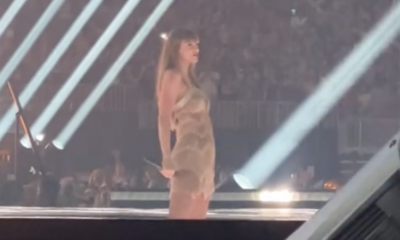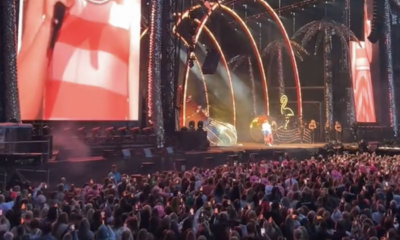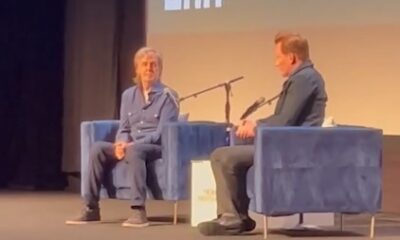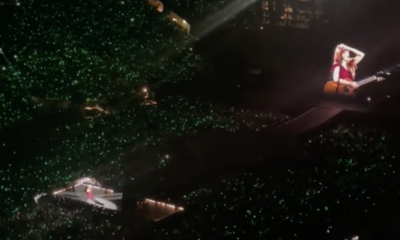NEWS
Writers and Studios Return To Negotiating Table To Resolve Hollywood Strikes
Published
8 months agoon

Courtesy of khiemh/Instagram
The Writers Guild of America and the Alliance of Motion Picture and Television Producers (AMPTP) are back at the negotiating table this week in the hopes of resolving a strike that has dragged on for nearly five months.
In a rare joint statement Wednesday consisting of only one sentence, the WGA and AMPTP said, “The WGA and AMPTP met for bargaining today and will meet again tomorrow.”
More than 11,000 writers in the film and television industry went on strike on May 2, and on July 14 they were joined on the picket lines by some 160,000 actors represented by SAG-AFTRA for the first double strike since 1960.
SAG-AFTRA and the WGA each voted to strike after their respective contract negotiations broke down with the AMPTP, which represents studios including Netflix, Amazon, Apple, Disney, Discovery-Warner, NBC Universal, Paramount and Sony.
“The companies’ behavior has created a gig economy inside a union workforce,” the WGA said in a statement announcing the strike.
“From their refusal to guarantee any level of weekly employment in episodic television, to the creation of a ‘day rate’ in comedy variety, to their stonewalling on free work for screenwriters and on AI for all writers, they have closed the door on their labor force and opened the door to writing as an entirely freelance profession,” the WGA said.
Striking actors and writers are fighting back against the low pay for streaming movies and shows, and lack of residuals. Viewership for streaming content is not typically revealed by streamers, unlike TV ratings or box office numbers, and those working on the most successful streaming content do not get residual compensation commensurate to similarly successful projects in traditional TV and film.
The use of artificial intelligence is also a sticking point for both unions. SAG-AFTRA objected to the studios’ desire to own AI scans of actors and use them in perpetuity without consent or compensation for each use.
At a press conference announcing the strike, SAG-AFTRA’s chief negotiator, Duncan Crabtree-Ireland, revealed that studios “proposed that our background performers should be able to be scanned, get one day’s pay, and their companies should own that scan, their image, their likeness and should be able to use it for the rest of eternity on any project they want, with no consent and no compensation.”
Since the walkout began, production has stopped on numerous movies and TV shows, which could leave a major hole in future release schedules. The effect was more apparent in late night TV, where the five major late night shows immediately went dark.
Their hosts — Stephen Colbert, Jimmy Fallon, Jimmy Kimmel, Seth Meyers and John Oliver — launched the “Strike Force Five” podcast last month, with proceeds going to support their out-of-work staffs for the duration of the strike.
A number of daytime talk shows, meanwhile, have pushed back their fall return dates as the writers’ strike continues.
TMX contributed to this article.
More Movies + TV Shows
-


Channing Tatum And Daughter Everly Trade Friendship Bracelets At Taylor…
-


Jamie Foxx Returns Purse To Fan In Chicago
-


Bijou Phillips Files For Divorce After Danny Masterson Sentenced to…
-


Tom Holland, Zendaya Share Sweet Moment Singing Love On Top…
-


More: Zoomed Out Angle Of Taylor Swift Saying Stop, She…
-


Lana Del Rey at Waffle House, in Uniform, in Florence,…
-


When Taylor realizes she has approx 1.5 minutes to go…
-


More: Pink’s Daughter Willow Sage Hart Joins Her Onstage To…
-


Priyanka Chopra Stuns As She Leaves Paris Hotel To Attend…
-


More – Ice Spice Joins Taylor Swift To Perform Karma…
-


Paul McCartney Interviewed by Conan OBrien at Tribeca Festival on…
-


Taylor Swift Cracks Up During Performance Of This Is Why…

